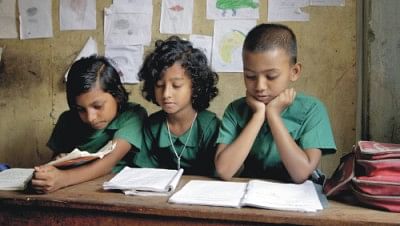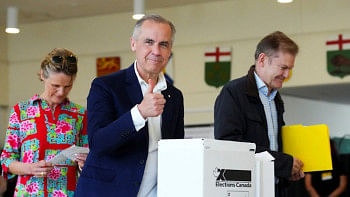Education as a fundamental right

A.M.Ahad/Driknews
THE right to education has been recognised since the Universal Declaration of Human Rights (UDHR) in 1948. Article 26 of UDHR proclaims: "Everyone has the right to education. Education shall be free, at least in the elementary and fundamental stages. Elementary education shall be compulsory. Education shall be directed to the full development of human personality and to the strengthening of respect for human rights and fundamental freedoms. It shall promote understanding, tolerance and friendship among racial or religious groups … ."
The right to education has been enshrined in a range of international conventions, including the International Covenant on Economic, Social and Cultural Rights (ICESCR, 1966), the Convention on the Elimination of all forms Of Discrimination Against Women (CEDAW, 1979), the Convention on the Rights of the Child (CRC, 1989), and more recently Convention on the Rights of the Persons with Disabilities (2006). It has also been incorporated into various regional treaties and many national constitutions.
Right to education has been accepted as a fundamental right along with a constitutional guarantee in Article 17 of the interim Constitution (2007) of Nepal. It is states that (i) each community shall have the right to get basic education in their mother tongue as provided for in the law; (ii) every citizen shall have the right to free education from the state up to secondary level as provided for in the law; (iii) each community residing in Nepal shall have the right to preserve and promote its language, script, culture, cultural civility and heritage.
According to Article 36 of the Constitution of Maldives, right to education is the fundamental right of the citizens of Maldives. It says that (i) everyone has the right to education without discrimination of any kind; (ii) primary and secondary education shall be freely provided by the state. It is imperative on parents and the state to provide children with primary and secondary education. Opportunity for higher education shall be generally accessible to all citizens; (c) education shall strive to inculcate obedience to Islam, instill love for Islam, foster respect for human rights, and promote understanding, tolerance and friendship among all people.
In 2002, the Indian government incorporated the right to education in its constitution as a fundamental right of the citizens through Article 21A, mentioning that the state shall provide free and compulsory education to all children between the ages of six and fourteen years in such manner as the state may, by law, determine. This constitutional obligation came into force through passing of the Right of Children to Free and Compulsory Education (RTE) Act 2009, and was a historic moment for the children of India.
This Act serves as a building block to ensure that every child has his or her right (as an entitlement) to get a quality elementary education, and that the state, with the help of families and communities, fulfils this obligation. The RTE Act has three major obligations that require adequate funding provisions, (i) recruit and deploy teachers at 30:1 ratio in every school within six months of notification; (ii) neighbourhood schools of specified quality for every child within three year; (iii) all teachers to be trained to a national norm within five years of notification.
The Awami League-led government is committed to undertaking structural reforms that are expected to bring significant improvements in the education sector. The commitment was made on May 31, 2010 after approval of the National Education Policy, which says that primary education will be free for all and compulsory up to class-VIII and stipends would be given to students on the basis of results in class V.
In addition to this, Article 8(2) of the Constitution says that the fundamental principles of state policy shall be fundamental to the governance of the state and shall be guide to the interpretation of the Constitution and other laws and for making of laws of Bangladesh.
Article 17 of the Constitution guarantees free and compulsory education. It says: "Free and compulsory education: The state shall adopt effective measures for (i) establishing a uniform mass-oriented and universal system of education and extending free and compulsory education to all children to such stage as may be determined by law; (b) relating education to the needs of the society and producing properly trained and motivated citizens to serve these needs; (c) removing illiteracy within such time as may be determined by law."
The perspective plan of Bangladesh 2010-2021 says: "Education is directly linked to the building of a dynamic economy, an efficient system of governance and secular democracy and an enlightened progressive society. Illiteracy and democracy cannot run together. Recent experiences of developing countries suggest that successful implementation of population policies, such as delayed marriage and child birth, and reduction in family size, depends to a great extent upon successful education of girls. Education, health, nutrition, family size and employment reinforce each other."
The specific objective of this plan regarding education is to eliminate illiteracy by 2014 and attain 100% enrolment in the 12th class by 2021 with gender parity addressing the dropout problem at the primary and secondary levels. It is planned to implement the national education policy by 2019, while the nation has an international commitment to reach EFA and MDGs goals by 2015.
Above all, Bangladesh has a constitutional obligation for right to education that in pursuant to the provision of Article 8(2) of the Constitution, the constitutional provisions of "equality clause" contemplated under Article 27, "equality of opportunity in public employment" contemplated under Article 29 and "protection of right to life and personal liberty" contemplated under Article 32. These must be read and interpreted together with the provisions of Article 17 of the Constitution.
Hence, equality of opportunity in public employment must necessarily include equality of access to the opportunity in public employment, which must encompass the obligation of the state to adopt necessary measures to achieve the full realisation of the contents of Article 17 to allow the citizen to be properly trained or educated to get access to Article 29 and not to be deprived of life to enjoy the rights enshrined in Article 32. All the mentioned articles justify free and compulsory education as a fundamental right of the people. So, there is no scope to deny the demand for constitutional recognition of education as a fundamental right.

 For all latest news, follow The Daily Star's Google News channel.
For all latest news, follow The Daily Star's Google News channel. 



Comments